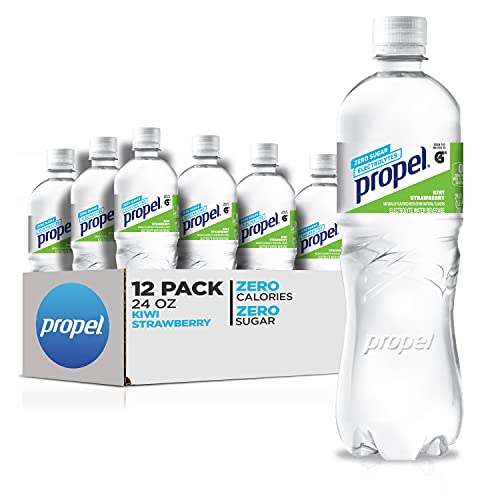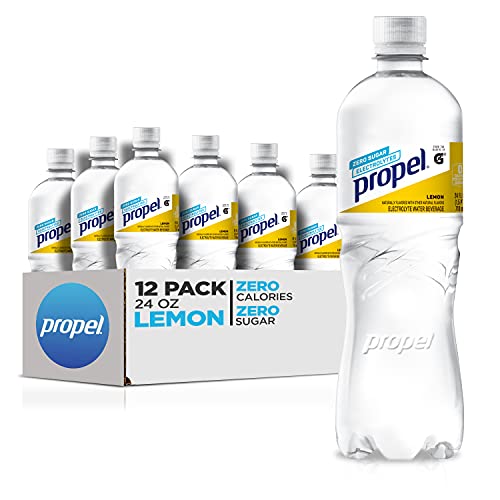How to Choose the Flavored Drinking Water
Is Flavored Water Healthy? Everything You Need To Know

- 1. Is Flavored Water Healthy? Everything You Need To Know
- 1.1. What is Flavored Water?
- 1.2. Is Flavored Water Healthy?
- 1.3. Distinguishing Between Natural and Synthetic Flavorings
- 1.4. What Types Of Additives Are Present In Flavored Water?
- 1.5. Benefits of Flavored Drinking Water
- 1.6. Choosing the Right Flavored Water for You
- 1.7. Flavored Water Recipes
- 1.8. Conclusion
Over the years, individuals have altered their approaches to managing their daily water consumption. Both artificial and natural methods can be employed to impart flavor to water. Artificially flavored water provides minimal to no advantages and can adversely affect the body. On the other hand, water naturally infused with flavors from wholesome sources can contribute to enhancing our immune system due to its abundance of nutrients, vitamins, and minerals.
What is Flavored Water?
In essence, flavored water involves taking pure water and incorporating natural or synthetic ingredients to improve its taste.
The Food and Drug Administration (FDA) oversees the production of bottled water in the United States, imposing rigorous standards for identity, quality, and manufacturing practices on manufacturers. If a company labels its product as "flavored water" and includes "water" in the title, it must adhere to the same FDA guidelines as traditional bottled water to ensure transparency.
Flavored water encompasses a diverse range of products, including sparkling water, zero- or low-calorie options, and fortified beverages. These may contain natural or artificial flavorings, sugar or artificial sweeteners, and additional nutrients like vitamins or caffeine. While opting for flavored water over high-calorie, sugary beverages is generally a healthier choice, it's important to note that flavored water with added artificial ingredients may not always align with your health goals.
Is Flavored Water Healthy?
Enhancing water with fruits like watermelon, cucumber, lemon, cherries, and oranges, as well as incorporating herbs like basil or mint, provides a refreshing and all-natural flavored water. The advantages of consuming such naturally flavored water can vary based on the specific ingredients utilized.
Opting for flavored water as a substitute for high-calorie, sugary beverages can be a healthier decision. For instance, sodas often contribute numerous calories due to their elevated sugar content. However, it's important to note that some flavored waters also contain added sugar and the associated calories. Therefore, carefully scrutinizing the product label is essential to ascertain whether a particular brand serves as an effective low-calorie option.
Distinguishing Between Natural and Synthetic Flavorings
The taste in water can originate from either natural or synthetic flavorings. When a label claims "natural," it typically implies that the ingredient is derived from sources found in nature. On the other hand, "synthetic" indicates that the component is produced in a laboratory setting. In the realm of processed foods and sugary drinks, the term "lab-made" often carries a negative connotation. However, this is not always applicable to flavored waters.
The choice between natural and synthetically-flavored water is often subjective. It's essential to recognize that the term "synthetic" doesn't inherently imply inferior quality, and consumers should not be alarmed by such terminology. Naturally-flavored waters typically include ingredients like fruit extracts, whereas synthetically-flavored counterparts may incorporate human-made components, such as fruit extracts, to achieve a specific taste in the water.
What Types Of Additives Are Present In Flavored Water?
Flavored water encompasses a diverse range of additives incorporated by various companies, with varying degrees of health implications. The added nutritional benefits in flavored water often stem from the nutrients present in the flavoring agents. Potential additives include:
- Fruit Juice: Many flavored waters feature the addition of various fruits, each contributing distinct beneficial nutrients such as vitamin C and a variety of antioxidants.
- Herbs: Some flavored waters incorporate herbs not only for taste but also for their inherent herbal properties. For instance, sage may be included for its calming effects.
- Sugar: While sugar is a common ingredient, excessive amounts can render the water borderline unhealthy. Monitoring sugar content is crucial, especially for those who consume substantial quantities.
- Artificial Sweeteners: The healthiness of flavored water with artificial sweeteners varies, as different types exhibit different impacts on health.
- High Fructose Corn Syrup: A potentially unhealthy additive, it's advisable to be cautious and check nutrition labels for its presence.
- Minerals: Some flavored waters contain naturally occurring minerals, while others have minerals added. These mineral additions can be positive from a health perspective.
- Quinine: Mainly found in certain tonic waters, quinine imparts a unique, bitter flavor. Caution is advised, as excessive consumption may lead to health issues like headaches and severe bleeding.
- Artificial Flavors: While generally safe, individuals with concerns about artificial additives may opt for products containing natural flavoring agents.
- Artificial Carbonation: Adding a neutral aspect to health, artificial carbonation is commonly used in flavored water. Home machines are available for those who wish to carbonate water themselves.
Benefits of Flavored Drinking Water
- Enhanced Hydration: Many people find it challenging to meet their daily water intake requirements due to the lack of interest in plain water. Flavored water provides a tasty alternative, encouraging individuals to consume more fluids and stay adequately hydrated.
- Low-Calorie Options: Unlike sugary sodas and fruit juices, most flavored waters are low in calories, making them a healthier choice for those watching their calorie intake. This makes flavored water an attractive option for individuals seeking a guilt-free beverage.
- Natural Ingredients: A significant portion of flavored waters on the market contains natural flavors derived from fruits, herbs, and botanicals. This appeals to health-conscious consumers who prefer beverages without artificial additives.
- Variety of Flavors: The sheer variety of flavors available in the market is staggering. From classic citrus and berry blends to exotic combinations like cucumber mint or watermelon basil, there's a flavor for every taste preference.
- Convenience: Flavored water is conveniently packaged in bottles or cans, making it easy for individuals to stay hydrated on the go. This convenience factor has contributed to its popularity among busy professionals, athletes, and those leading active lifestyles.
Choosing the Right Flavored Water for You
Hydrating your body is a personal journey, and there's no one-size-fits-all solution. Regular hydration is essential, as even mild dehydration can affect your well-being and bodily functions. Symptoms range from fainting and lightheadedness to more severe issues like tachycardia, stroke, or rapid breathing.
To find the ideal water for you, consider your health goals and taste preferences. Regardless of the type, increasing your water intake is vital for boosting energy levels, preventing constipation and bloating, and enhancing the appearance and texture of your skin.
Although the nutritional value from flavoring in water is typically minimal, flavored water can be advantageous in situations where people are more likely to drink additional water due to the enhanced taste.
Flavored Water Recipes
- Elevate your water with a burst of vitamin C and iron by adding zesty lime and fragrant basil.
- Craft a "Skinny Spice" blend by infusing water with cinnamon sticks, ground cinnamon, and apples. This combination not only adds a delightful flavor but also contributes to lowering blood sugar concentration and improving insulin sensitivity.
- Create a refreshing infusion by combining orange slices with a hint of vanilla. If vanilla bean isn't available, vanilla extract works just as well, providing a natural source of antioxidants.
- Enjoy a dual benefit by infusing water with strawberries and basil. The herb contributes iron, while the berries bring in vitamin C, known for its anti-cancer properties and skin-protective effects.
- Experience a vibrant mix of vitamins A and C by adding slices of watermelon and jalapeños to your water. The spicy kick from jalapeños, containing capsaicin, releases endorphins, providing an energizing rush.
- Support your detox goals by infusing water with lemon, ginger, or cucumber. These flavorful additions not only enhance the taste but also contribute to flushing out fat and toxins, aiding in weight loss.
Conclusion
The introduction of flavored drinking water has transformed our approach to hydration, presenting a pleasing substitute for regular water. With a diverse range of flavors and various health advantages, it has gained widespread popularity among those desiring a more enjoyable and appealing method to fulfill their daily hydration objectives. Whether savored directly from the market or prepared at home, flavored water stands as a enduring trend, enhancing our drinking experiences with each unique flavor.











